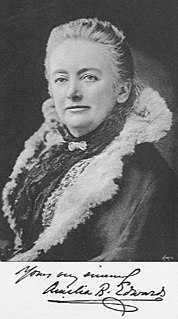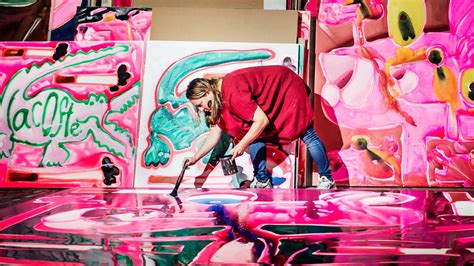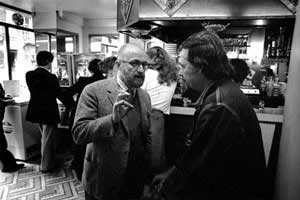A Quote by E. J. Hughes
It takes more time to rework a painting than it takes to fill in the canvas in the first place. I wish I could get them all right with the first coat like many of the old masters could, but seem destined to have to rework to make them even passable.
Related Quotes
In working on a drawing or a painting, one can rework and rework and rework and change ideas until you get it the way you think is right at that time. With clay that's not possible. You either succeed the first time, or you should wad it up and start over again, because you can't mess around with the clay and still have it fresh.
It may be said of some very old places, as of some very old books, that they are destined to be forever new. The nearer we approach them, the more remote they seem: the more we study them, the more we have yet to learn. Time augments rather than diminishes their everlasting novelty; and to our descendants of a thousand years hence it may safely be predicted that they will be even more fascinating than to ourselves. This is true of many ancient lands, but of no place is it. so true as of Egypt.
After finishing the first draft, I work for as long as it takes (for two or three weeks, most often) to rework that first draft on a computer. Usually that involves expansion: filling in and adding to, but trying not to lose the spontaneous, direct sound. I use that first draft as a touchstone to make sure everything else in that section has the same sound, the same tone and impression of spontaneity.
You try to make them comfortable so they can do what they're best at, and make them shine. You always want to make an actor shine. I'm of the mind that there's no one - you, your mother, anyone, that if in the right place at the right time in the right context, couldn't shine in a movie. And so if it means, "Oh, I have to make them uncomfortable," then whatever it takes to get what I need up onscreen. It's all in the service of the story.
Personally I would like to have pupils, a studio, pass on my love to them, work with them, without teaching them anything.. ..A convent, a monastery, a phalanstery of painting where one could train together.. ..but no programme, no instruction in painting.. ..drawing is still alright, it doesn't count, but painting - the way to learn is to look at the masters, above all at nature, and to watch other people painting.
The first time, I usually skim off the outer layer and end up with photographs that are fairly obvious. The second time, I have to look a little deeper. The images get more interesting. The third time it is even more challenging and on each subsequent occasion, the images should get stronger, but it takes more effort to get them.
When the artist is truly the servant of the work, the work is better than the artist; Shakespeare knew how to listen to his work, and so he often wrote better than he could write; Bach composed more deeply, more truly than he knew, Rembrandt's brush put more of the human spirit on canvas than Rembrandt could comprehend. When the work takes over, then the artist is enabled to get out of the way, not to interfere. When the work takes over, then the artist listens.
A bouquet of clumsy words: you know that place between sleep and awake where you're still dreaming but it's slowly slipping? I wish we could feel like that more often. I also wish I could click my fingers three times and be transported to anywhere I like. I wish that people didn't always say 'just wondering' when you both know there was a real reason behind them asking. And I wish I could get lost in the stars. Listen, there's a hell of a good universe next door, let's go.
I remember the first time going to St. Jude. I didn't like going there because the children were ill, and it just broke my heart. It makes you test your religion when you see something like that. But the Lord doesn't want just old people. You know, He wants some young people, too, and good people. He takes care of them. He takes care of them.







































